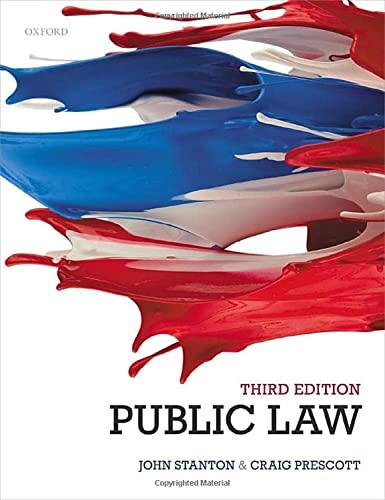Question
1. Two business consultants agree to cut their costs by sharing office space and a secretary. They equally divide the expenses of the office, but
1. Two business consultants agree to cut their costs by sharing office space and a secretary. They equally divide the expenses of the office, but keep their accounts separate. The two businessmen refer to each other as "my partner" and regularly bring each other in to help with the business problems of clients who come to the office. What risk is involved here by the conduct of the businessmen? Discuss.
2. Kelli and Marcus are partners in Wonder Book, a General Partnership, a publisher of technical and reference books. Each has authority to make contracts with authors to publish books. Marcus contracts to publish a book, The Desk Guide to Spelling. Marcus makes the contract only after carefully reading the manuscript, reviewing the competition and their sales, and consulting projections for sales of similar books. He believes that the book will have a high volume of sales. Nevertheless, the book is a flop and Wonder loses $50,000 on the deal. During an accounting, Kelli claims that Marcus is liable for the $50,000 for making a bad decision to publish the spelling book. Is Marcus personally liable to his partner Kelli? Why or why not?
3. Jo, Ted and Carol were partners. When Jo retired, Ted and Carol agreed to hold Jo harmless for any past debts of the partnership. No creditor agreed to this. Ted and Carol continued the business. All creditors knew of Jo's retirement. Don was owed $2,000 for supplies delivered to the partnership when Jo was a partner. After Jo retired, Ted gave Don a promissory note of the partnership for the amount of $2,100 as payment for the $2,000 debt owed for supplies. The partnership never paid the note. Ted and Carol refused to pay the note. May Don collect on either the note or the underlying debt from Jo? Why or why not?
4. Kim is a partner of Angst Associates, a management consulting firm that provides advice to corporations ranging in size from $8,000,000 to $40,000,000 in assets. Crient Company asks Kim whether she will provide management consulting services to Crient. Kim says she will do it personally and that Crient should pay her directly. Crient has $10,000,000 in assets. At night and on weekends, Kim consults with Crient. Crient pays Kim $25,000. Has Kim done anything wrong? If so, what has she done wrong?
Step by Step Solution
There are 3 Steps involved in it
Step: 1

Get Instant Access to Expert-Tailored Solutions
See step-by-step solutions with expert insights and AI powered tools for academic success
Step: 2

Step: 3

Ace Your Homework with AI
Get the answers you need in no time with our AI-driven, step-by-step assistance
Get Started


